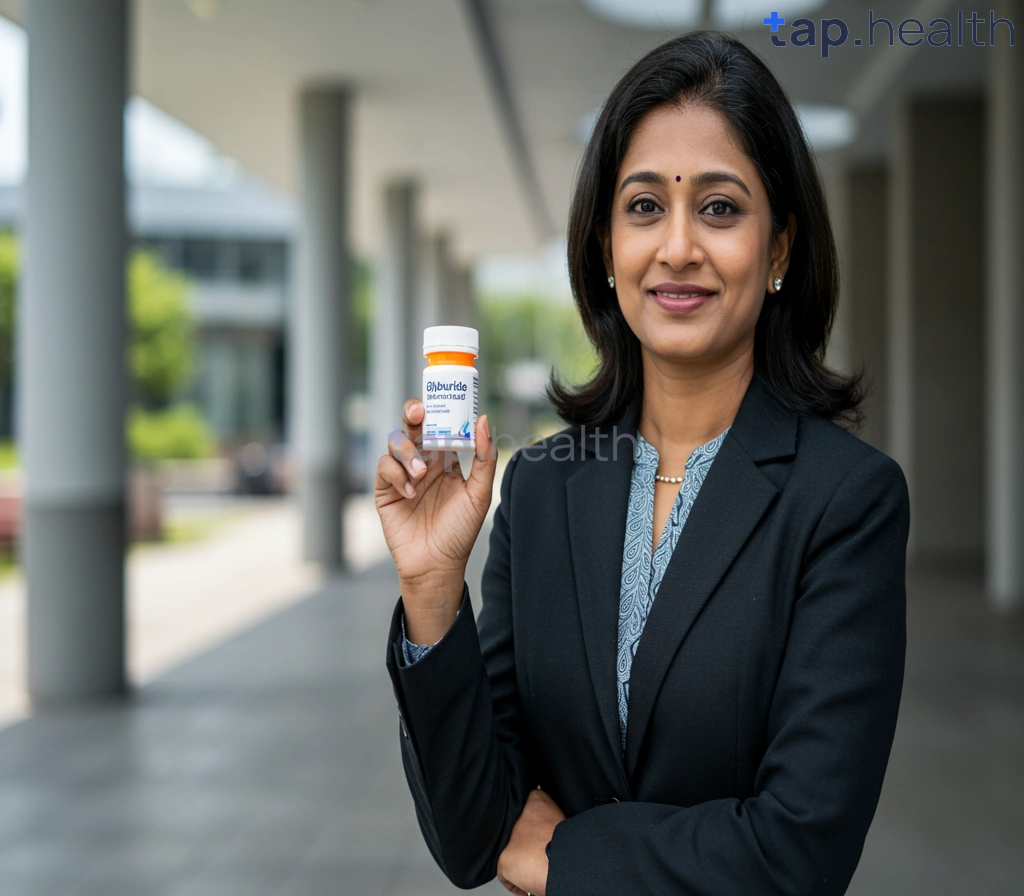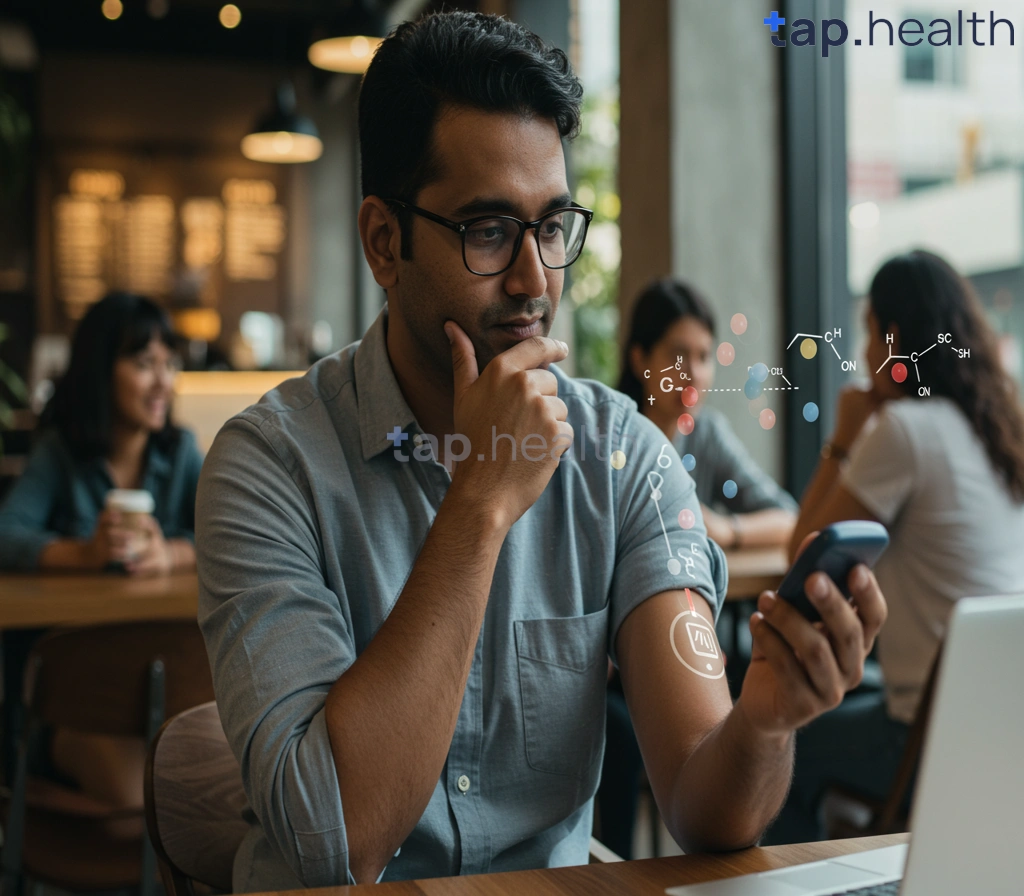Table of Contents
- Revolutionizing Diabetes Care: Modern Management Techniques
- Advanced Diabetes Management: A Comprehensive Guide
- Is Your Diabetes Management Up-to-Date? A Checklist
- Top 5 Strategies for Revolutionizing Your Diabetes Care
- Diabetes Technology: Innovative Tools for Improved Care
- Frequently Asked Questions
- References
Living with diabetes can feel like navigating a complex maze, but it doesn’t have to be a constant uphill battle. Revolutionizing Diabetes Care: A Guide to Modern Management is here to help you simplify things. This blog will explore the latest advancements and innovative strategies making diabetes management easier and more effective than ever before. We’ll delve into practical tips, cutting-edge technologies, and evidence-based approaches to help you take control of your health. Get ready to discover a new level of confidence and freedom in managing your diabetes.
Revolutionizing Diabetes Care: Modern Management Techniques
The World Health Organization reports a shocking jump in diabetes cases – from 200 million in 1990 to a staggering 830 million in 2022! Source This explosion highlights a crucial need: a complete overhaul of how we manage diabetes, especially in places like India and other tropical regions where prevalence is high, and access to good care can be a real struggle. It’s no longer enough to just react to problems; we need proactive strategies.
Lifestyle Modifications: The Cornerstone of Management
Think of lifestyle changes as the foundation of effective diabetes management, especially in hot climates. A balanced diet—packed with fresh fruits, vegetables, and whole grains—is key. Cut back on processed foods and sugary drinks. Equally important is regular exercise, but remember to be smart about it in the heat. In India, for example, gentle yoga or mindful walks can be fantastic.
Technological Advancements: Empowering Patients
Technology is a game-changer. Continuous Glucose Monitors (CGMs) give you real-time glucose data—imagine having a personal glucose assistant! Telemedicine connects you with specialists, a lifesaver in remote areas. And helpful mobile apps let you track everything—blood sugar, meds, even your exercise.
Medication & Insulin Therapy: Tailoring Treatments
Treatment is intensely personal. What works for one person might not work for another, and regional factors play a huge role. Affordable insulin and oral meds are a massive challenge in many developing countries, but increased awareness and government support are essential to bridge this gap. For more targeted tips, explore our blog: 10 Proven Tips for Effective Diabetes Management.
Community-Based Support: Strengthening Networks
Community support is vital. Culturally sensitive education programs can empower individuals to make healthy choices. Peer support groups offer a lifeline, boosting adherence to treatment plans. Building these strong support networks is critical, particularly in India and other tropical countries where diabetes is surging. And remember, managing diabetes changes as we age; learn more here: Managing Diabetes as You Age: Challenges and Solutions.
Advanced Diabetes Management: A Comprehensive Guide
Diabetes significantly impacts millions in India and other tropical nations, particularly those aged 20-64, as highlighted by the IDF Diabetes Atlas (https://diabetesatlas.org/data/en/world/). Mastering diabetes isn’t just about managing symptoms; it’s about thriving. This guide provides practical steps tailored to tropical climates.
Understanding Your Diabetes
Knowing whether you have Type 1 or Type 2 diabetes is fundamental. This dictates your treatment, from medication to lifestyle changes. Regular blood sugar checks are vital – think of it as your diabetes compass. The heat and humidity of tropical climates can play havoc with glucose levels, so discuss testing frequency with your doctor. They’ll help you find the right balance.
Lifestyle Modifications for Tropical Climates
Hydration is key in hot, humid weather. Dehydration worsens diabetes symptoms; think of it like adding fuel to a fire. Prioritize water throughout the day, especially during activity. Embrace culturally relevant, fresh foods – think vibrant fruits, leafy greens, and lean proteins. Portion control is your secret weapon for stable blood sugar.
Seeking Support and Resources
Access to good healthcare is invaluable. Many tropical regions have dedicated diabetes clinics and support groups – these are your allies. Connecting with others facing similar challenges provides emotional support, education, and expert guidance. Regular check-ups ensure your management plan stays on track. Never hesitate to ask questions; your health is your priority. For quick tips, check out our guide on 10 Proven Tips to Effectively Manage Diabetes.
Actionable Steps for Better Management
Consistency is crucial. Small, manageable changes yield big results. Start with a doctor’s appointment, explore local support groups, and implement the dietary and hydration strategies discussed. Consider a personalized diabetes plan – it’s like having a tailor-made suit for your health. Your journey to better diabetes management starts now.
Is Your Diabetes Management Up-to-Date? A Checklist
Understanding the Growing Need for Effective Diabetes Management in India and Tropical Countries
Diabetes is a silent epidemic, especially in India and other tropical nations. The International Diabetes Federation reports a truly alarming figure: 536.6 million people aged 20-79 lived with diabetes in 2021—a number projected to balloon to 783.7 million by 2045. This isn’t just a statistic; it’s a call to action. The heat and humidity, coupled with lifestyle factors and genetic predispositions, make proactive management crucial.
Prioritizing Regular Checkups and Monitoring
Think of your blood sugar like a vital sign – you wouldn’t ignore a persistent fever, right? Regular blood sugar monitoring, HbA1c tests, and doctor’s visits are non-negotiable. The tropical climate can throw a wrench into things – heat and humidity can impact your levels. Don’t wait for a crisis; consistent monitoring and early intervention are your best weapons.
Dietary Adjustments for Tropical Climates
Your diet is your superpower. In India and similar climates, embrace the bounty of fresh, local produce. Think vibrant mangoes, leafy greens, and fiber-rich legumes – these help stabilize blood sugar. Cut back on processed foods, sugary drinks, and refined carbs. A nutritionist can personalize a plan that fits your lifestyle and the climate. Avoiding the common diabetes management pitfalls makes a huge difference.
Lifestyle Modifications for Long-Term Health
Regular physical activity is key, but adapt it to the climate. Early morning or evening walks, or a refreshing swim, are great options. Stress management techniques like yoga or meditation are incredibly beneficial, especially in hot climates. Remember, even small, sustainable changes add up. And managing diabetes often means addressing related health concerns, like cholesterol, as explained in this helpful guide.
Seeking Expert Advice and Support
Don’t face this alone. Connect with diabetes specialists and support groups. Numerous resources are available to help navigate this journey. Ask questions, seek clarification, and remember your health is paramount. You deserve to thrive, not just survive.
Top 5 Strategies for Revolutionizing Your Diabetes Care
Prioritize a Healthy Diet
Let’s be honest, managing diabetes can feel like a marathon, not a sprint. But the good news is, you have incredible power to influence your health. Did you know that up to 80% of Type 2 diabetes cases are preventable through lifestyle changes? This research drives that point home. Think vibrant, colorful plates! In India and other tropical regions, that means focusing on fresh, local produce—think mangoes, spinach, and brown rice. Swap processed foods, sugary drinks, and refined carbs for whole grains and lean proteins. Even small changes, like those outlined in this helpful guide, can make a big difference.
Increase Physical Activity
Regular exercise isn’t just about shedding pounds; it’s about improving your body’s response to insulin. Aim for at least 150 minutes of moderate-intensity aerobic activity weekly—think brisk walks in the cool morning air or a revitalizing yoga session. Remember to always check with your doctor before starting any new exercise routine, especially with pre-existing conditions.
Manage Stress Effectively
Stress? It’s a sneaky culprit when it comes to blood sugar levels. Find ways to de-stress that resonate with you. Meditation, pranayama (yogic breathing), or even a quiet moment in nature can work wonders. These practices are deeply rooted in many Indian and tropical cultures and can be incredibly powerful tools.
Monitor Blood Sugar Regularly
Regular blood glucose monitoring is your best friend. It provides invaluable feedback, allowing you to make timely adjustments to your diet, medication, or exercise plan. Your doctor can guide you on how often you should check.
Seek Professional Guidance
Teamwork makes the dream work! Regular check-ups with your doctor or a diabetes specialist are crucial. They can offer personalized guidance, track your progress, and fine-tune your treatment plan. Early detection and consistent management are key to preventing serious complications. And remember, family support within many Indian communities can be a powerful asset in this journey. Plus, protecting your heart is equally vital; take a look at these 5 essential steps.
Diabetes Technology: Innovative Tools for Improved Care
Revolutionizing Diabetes Management in India and Tropical Countries
Diabetes is a global challenge, with a shocking 50% of cases worldwide going undiagnosed—a particularly alarming statistic in rapidly developing nations like India and other tropical countries. Imagine the impact: millions facing potentially avoidable complications. Learn more about the global diabetes landscape here. But there’s hope. Advancements in diabetes technology are transforming how we manage this condition, offering a lifeline to those who need it most.
Accessible Technology for Better Outcomes
Think of it like this: continuous glucose monitors (CGMs) are like having a tiny, tireless lab assistant constantly checking your blood sugar. This real-time data empowers you to adjust your diet and medication proactively, preventing those dangerous highs and lows. Smart insulin pens add another layer of precision and automation, simplifying what can feel like a constant juggling act. While initially expensive, these technologies are becoming increasingly affordable, opening doors to better management even in resource-limited settings. Dive deeper into how technology improves diabetes lifestyle here.
Actionable Steps for Improved Management
Navigating this technological landscape in India and tropical countries requires a smart approach.
- Check for government subsidies or programs at your local diabetes clinic – you might be surprised at what’s available.
- Connect with support groups; sharing experiences is incredibly valuable.
- Remember, regular check-ups with your healthcare provider are non-negotiable for effective diabetes management.
The role of AI in all this is also game-changing; discover more about AI’s impact here.
Empowering Individuals Through Technology
The future of diabetes care is undeniably intertwined with technology. By embracing innovation and accessing available resources, individuals in India and tropical countries can actively manage their condition, leading healthier, more fulfilling lives. It’s about empowering you to take control. Talk to your doctor; let’s explore your options together.
Frequently Asked Questions on Diabetes Care
Q1. What are the most effective ways to manage diabetes, especially in hot climates?
Effective diabetes management starts with lifestyle modifications like a balanced diet rich in fresh produce and whole grains, reduced processed foods and sugary drinks, and regular, climate-appropriate exercise such as yoga or mindful walks. Technology plays a crucial role, with continuous glucose monitors (CGMs) providing real-time data and telemedicine enabling remote consultations. Personalized medication and insulin therapy, along with strong community support and culturally sensitive education programs, are also vital components.
Q2. How can technology improve my diabetes management?
Technology offers several advancements. CGMs provide real-time glucose data, empowering proactive adjustments. Telemedicine connects you with specialists, regardless of location. Helpful mobile apps track blood sugar, medication, and exercise. These tools, while initially costly, are becoming more accessible and can significantly improve management.
Q3. What are the biggest challenges in managing diabetes, and how can I overcome them?
Challenges include access to affordable insulin and oral medications, particularly in developing countries. The heat and humidity of tropical climates can also impact glucose levels. Addressing these involves increased awareness, government support to improve access, and personalized strategies to manage glucose fluctuations in varying climates. Building strong community support networks and actively seeking professional guidance are essential.
Q4. How do I get started with a better diabetes management plan?
Begin with a doctor’s appointment to determine your diabetes type and receive personalized guidance. Explore local support groups to connect with others and learn from shared experiences. Implement the dietary and hydration strategies outlined in your treatment plan, including regular blood sugar monitoring. Consider a personalized diabetes management plan tailored to your lifestyle and climatic conditions.
Q5. What are some common misconceptions about diabetes management?
A common misconception is that diabetes management is solely about medication. Effective management requires a holistic approach encompassing lifestyle changes, technological tools, and community support. Another is that diabetes management is overly complex and unattainable. Small, consistent changes yield significant results. Finally, many underestimate the importance of regular checkups and monitoring, which are crucial for early intervention and personalized adjustments to maintain optimal health.
References
- A Practical Guide to Integrated Type 2 Diabetes Care: https://www.hse.ie/eng/services/list/2/primarycare/east-coast-diabetes-service/management-of-type-2-diabetes/diabetes-and-pregnancy/icgp-guide-to-integrated-type-2.pdf
- Artificial intelligence in diabetes management: Advancements, opportunities, and challenges: https://www.cell.com/cell-reports-medicine/pdf/S2666-3791(23)00380-4.pdf





